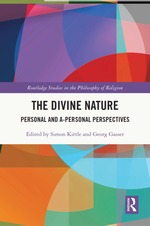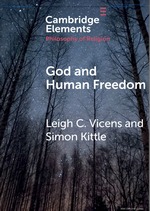Home | Writing | Talks and Similar | Knowledge Visualisations
Writing
Publications
Accepted. Flow, Unreflective Immersive Action, and the Fringe of Consciousness. In Larsen, T. M. and Sageng J. R., Varieties of Immersive Experience (TBC).
Summary: This paper is about the agency people exercise when they are immersed in some activity. I understand immersion along the lines of Csikszentmihalyi’s (1990) notion of flow, involving a high state of focus and diminished awareness of self. This paper attempts to articulate the kind of control that a person can exercise when so immersed. It considers the question of whether such immersive performances can be considered Anscombean, which is to say, whether the agent would, if they were stopped mid flow, be able to answer questions about what they were doing.
2025. God and Non-Human Animals. Cambridge University Press. ISBN: 9781009296205; doi: 10.1017/9781009296205
2025. Amipotence and the Nature of Agency. In Baker, Chris S., Brown, Brandon, Stewart, Melissa Owens, Young, James Travis (eds). Amipotence: Vol. 1, 359-366. (SacraSage Press).
2024. Moral
Responsibility and General Ability. Inquiry. doi:
10.1080/0020174X.2024.2374450 
2024. Science, Determinism, and Free Will. In Harris, M. God and the Book of Nature: Experiments in Theology of Science (Abingdon: Routledge).
Summary: Many scientists argue that empirical findings show that we have no free will, but their arguments assume incompatibilist notions of free will developed in the 18th century. Some theists aim to insulate theology from these arguments by embracing compatibilist understandings of free will. I show that (a) contemporary, incompatibilist accounts of free will are not inconsistent with the empirical findings, and (b) the fact that theistic compatibilism bypasses the science-vs-free will debate is of little aid to the theist, given that theistic compatibilism (i) makes the problem of evil intractable and (ii) requires a notion of freedom that disconnects it from agential control.
2023. Mindfulness and Agential Control. Journal of Humanistic Psychology. doi: 10.1177/00221678231191564
Summary: Mindfulness meditation seems to generate the following puzzle: on one hand, mindfulness reveals to the meditator that many of their thoughts are outside of their control; on the other, regular mindfulness practice is supposed to lead to greater self-control. In this article, I develop an agent-causal account of agential control that explains both claims. I suggest that the work of Hans Reiner shows us why the feeling of agency extends further than that which is directly controlled, and that this provides a way of addressing the puzzle above, while also explaining why many beginner meditators are surprised that much conscious thought is uncontrolled. I develop the account by appealing to Bruce Mangan’s application of William James’s notion of the fringe of consciousness, showing how the fringe makes possible a distinctive type of choice.
2023. The
Conditional Analysis of the Agentive Modals: A Reply to Mandelkern et
al.. Philosophia. doi: 10.1007/s11406-023-00664-7

2023. Free Will and Cognitive Biases. In Vainio, O-P. & Visala, A. Theological Perspectives on Free Will, 136-151. (Abingdon: Routledge). doi: 10.4324/9781003306191-10
2022. On General and Non-General Abilities.
Pacific Philosophical Quarterly. OnlineFirst. (journal)

2022. Does the automaticity in human behaviour undermine
human moral responsibility? Theological Puzzles 8. (journal; video abstract) 
2022. How (not) to think about the sense of ‘able’ relevant to free will. Inquiry 65(10): 1289-1307. (journal; postprint).

2022. Against Synchronic Free Will. In Kittle, S. and Gasser, G. The Divine Nature: Personal and A-Personal Perspectives, 176-194. (New York: Routledge). (preprint)
2022. An Introduction to Thinking about Personal and A-Personal Aspects of the Divine. In Kittle, S. and Gasser, G. The Divine Nature: Personal and A-Personal Perspectives, 1-20. (with Georg Gasser) (New York: Routledge). (preprint)
2022. The Incompatibility of Universal, Determinate Divine Causation with Human Free Will. In Vicens, L. and Furlong, P. Theological Determinism: New Perspectives, 100-118. (Cambridge University Press).
2022. Grace and Free Will: On Quiescence and Avoiding Semi-Pelagianism. European Journal for Philosophy of Religion 14(4): 70-95. (journal).
2022. God is (probably) a cause among causes.
Theology and Science 22(2): 247-262. (journal;
shortDOI: 10/hr3g) 
2022. Evaluating the Value of Free Will: Comments on
Ekstrom’s God, Suffering and the Value of Free Will.
Faith and Philosophy 39(3): 446-453. (journal
w/pdf) 
2020. Heavenly freedom, derivative freedom, and the value of free choices. Religious Studies 56(4): 455-472. (journal; postprint)

2019. God and Human Freedom. Cambridge University Press. (with Leigh Vicens) (CUP page)
Peter Furlong has reviewed the book in Faith and Philosophy 37(3): 390-394. (journal)
2019. Does everyone think the ability to do otherwise is necessary for free will & moral responsibility? Philosophia 47(4): 1177–1183. (journal; postprint)
2019. When is an alternative possibility robust?
European Journal of Philosophy 27(1): 199-210. (journal)

2018. Some problems of heavenly freedom.
TheoLogica 2 (2): 97-115. (journal
w/pdf) 
2017. Robustness and up-to-us-ness.
Disputatio 9 (44): 35-57. (journal w/pdf) 
2016. Possibilities for divine freedom. Roczniki
Filozoficzne 64 (4): 93-122. (journal
w/pdf) 
2015. Abilities to do otherwise. Philosophical Studies 172 (11): 3017-3035. (journal; postprint).
2015. Powers opposed and intrinsic finks. The Philosophical Quarterly 65 (260): 372-380. (journal; postprint).
2015. Grace and free will: quiescence and control.
Journal of Analytic Theology 3: 89-108. (journal
w/pdf) 
2014. Vihvelin and Fischer on ‘pre-decisional’ intervention. Philosophia 42 (4): 987-997. (journal; postprint).
Book reviews
2020. Review of W. Matthews Grant’s Free Will and God’s Universal
Causality. Faith and Philosophy 37(3): 374-379. (journal
w/pdf) 
2016. Review of John Martin Fischer’s Deep Control.
Faith and Philosophy 33 (2): 235-239. (journal
w/pdf) 
2013. Review of Huoranszki’s Freedom of the Will. Disputatio
V (37): 368-374. (journal
w/pdf) 
I also have a list of non-academic articles and a list of works in progress.